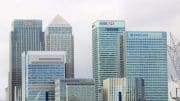London businesses remain cautiously optimistic about their profitability and turnover prospects in 2025, despite mounting cost pressures and concerns over recent Budget policies.
That is according to the Capital 500, London’s quarterly economic survey conducted by the London Chamber of Commerce and Industry which found that half of businesses in the capital expect their turnover to grow in the next 12 months.
That will mean the net balance for turnover – the percentage of firms that expect it to increase minus the percentage that expect it to decrease – rose 4 points to +33.
Businesses also remain cautiously optimistic about their profitability outlook. The net percentage of businesses expecting their profits to increase in 2025 rose to +32, a two-point increase from Q3 2024. Nearly half (48%) of businesses expect their profitability to rise over the next year.
However, optimism varied by business size. Profitability expectations among micro firms (0–9 employees) increased from +25 in Q3 to +31 in Q4, while larger firms (10+ employees) reported a more cautious outlook, with expectations falling from +59 to +52 in the same period.
While firms are confident about their own profitability outlook, concerns over the broader UK economy persist
Despite this cautious optimism, economic confidence has decreased markedly. The net balance for confidence in overall company prospects fell from +29 in Q3 to +15 in Q4, marking the lowest figure recorded since 2023. While businesses remain optimistic about their own prospects, confidence in the overall UK economy for 2025 has plummeted.
Predictions for economic health took a sharp 23-point drop in Q4 to -4, reflecting growing concerns about measures announced in the Autumn Budget and the Employment Rights Bill. Only 31% of businesses now believe the UK economy will improve over the next 12 months, a stark reminder of the uncertainty that businesses face heading into the new year.
Inflation continues to be the primary concern for London businesses. More than half (57%) of respondents identified inflation as more of a concern in Q4 2024 than in the previous three months. Rising energy and fuel costs also remain a significant burden, with 61% of businesses reporting higher energy costs and 50% citing increased fuel costs during the last quarter.
Firms also continued to report a stagnant labour market and workforce. Although more than a tenth (14%) of firms said their employment levels had grown in the previous three months (broadly consistent with 13% in Q3), there was a larger share of companies who said their workforce size had decreased (18% in Q4; 14% in Q3).
Karim Fatehi CEO of the London Chamber of Commerce, said this year will be one of cautious optimism for firms emerging from the volatility of an election super-year.
“While firms are confident about their own profitability outlook, concerns over the broader UK economy persist due to rising costs, disappointing fiscal policies, and ongoing labour shortages,” he said.
“To drive long-term growth, the Government must address business concerns around rising employer costs, reduced business rates relief, and the Employment Rights Bill. Stability, certainty, and supportive policies are crucial for London’s businesses to invest, innovate, and contribute to the UK’s prosperity.”
Related
Read the full Capital 500 report here.





